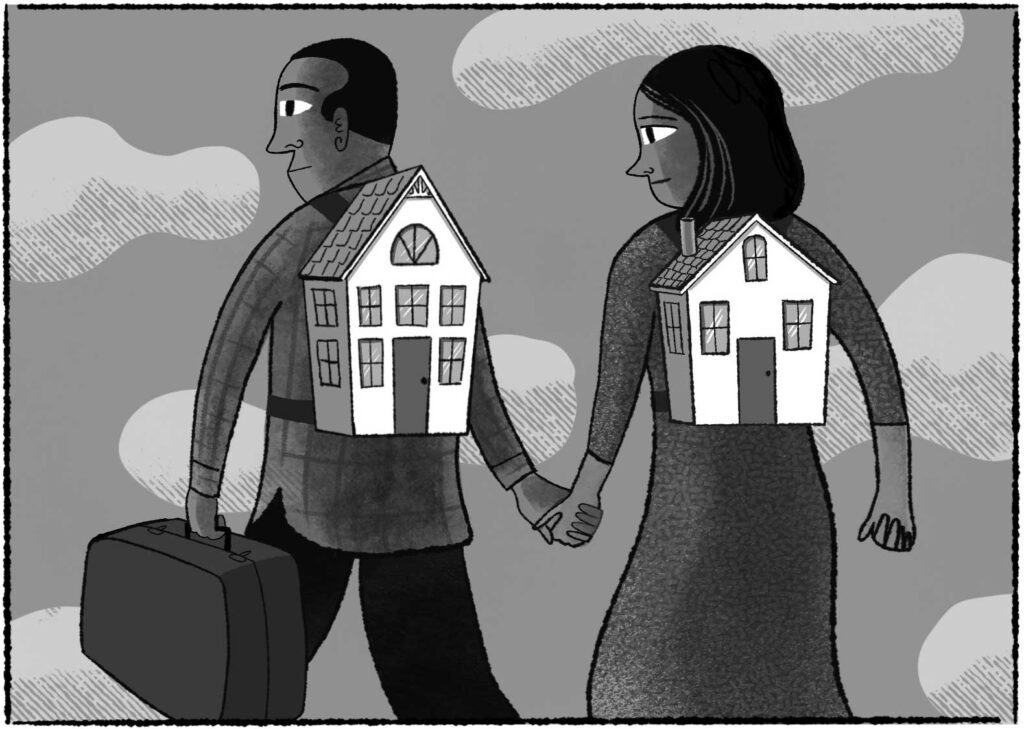The act of turning dark memories into words is difficult, especially when not working in one’s mother tongue. The writing in itself — finding the right phrase in a foreign language, then building a narrative — requires enormous strength of purpose. And to put a deeply personal story of persecution, flight, and loss of identity on the page, to be read by strangers anywhere in this volatile and vindictive world, is yet another act of courage.
“Persist. This is the price of freedom.” That is the observation offered by Mary Jo Leddy in her foreword to The Uncaged Voice, a collection of fifteen essays by writers in exile in Canada — writers from Afghanistan, Colombia, Eritrea, Ethiopia, India, Iran, Iraq, Kurdistan, Mexico, Pakistan, Sri Lanka, Syria, Turkey, and Venezuela. Leddy is the founder of Romero House, the charitable organization in Toronto that for more than thirty years has brought together refugees, supported their asylum claims, provided housing, and, in association with PEN Canada, introduced those who are writers to one another, with a potluck supper club and, more formally, writing workshops.
Edited by the novelist and screenwriter Keith Ross Leckie, The Uncaged Voice features writers living in the West, mostly in Canada. All are introduced as being from homelands to which they can no longer return. To varying degrees, most now see themselves as Canadian.

They carry with them memories of strife and home.
Jamie Bennett
Refugees often experience pressure from the Canadian public to be enormously grateful for the opportunity to hold permanent residency or citizenship, despite the fact that migration — both for an individual refugee and for their family, who sometimes cannot follow for many years — can be a long and difficult road. The journey is littered with obstacles: bureaucracy, language barriers, loneliness, racism, guilt, shame, and poverty. Simply finding a community in a foreign land is a complex challenge: on one hand, seeking the comfort of familiar ceremonies, shared memories, foods, and music of diasporic gatherings, even those still riven by homeland politics; on the other hand, wanting nothing to do with historic hostilities and debates. Particularly as a writer or journalist, a refugee may feel a deep responsibility to explain, to make better, to sustain hope for the place and especially for the people they came from. Or they may wish only to embrace freedom and build a future for their Canadian children. As one writer in this collection explains, “I was not born to migrate.”
“To this day, eight years since my last arrest, I still struggle to write about the horrendous and monstrous torture I endured,” admits Abdulrahman Matar, originally from Syria. The Eritrean journalist Aaron Berhane waited almost twenty years before he started putting his own story on paper — one that was published only after he died from COVID‑19. Like Matar and Berhane, most of the book’s contributors have struggled in their “beloved, imperfect, adopted homeland” of Canada. “Although I wasn’t silenced here,” recalls the Kurdish writer Ava Homa, “I wasn’t heard either.” Many have found that their professional credentials and experiences are suddenly irrelevant — unrecognizable and unrecognized, even devalued. For most, this quiet, lovely volume represents their first opportunity to be published in the mainstream Western press, though a few essays are excerpts from previously published books.
I use the words “quiet” and “lovely,” but these pieces reflect upon events that are neither. Each of the contributors describes the moment when they had to either flee or face persecution, imprisonment, even death. History is front-loaded in these accounts because the writers are more than refugees from conflict; they are implicated somehow in the conflict as journalists, editors, writers, or activists. They have been targeted as individuals. Almost every writer begins with a complex backstory, of long ethnic wars or waves of occupation or a succession of coups. They must make the context clear before their individual chronicle can begin. The crux of every story: This is when and why I had to leave home.
The Uncaged Voice gathers refugees to speak alongside and to one another, as well as to a larger audience. As readers, we are brought into that room and taken by the hand to places and realities otherwise inaccessible if not unimaginable. Although every piece resonates, I find myself returning to these lines by the journalist Alexander Duarte, who was once the media and public relations director for Venezuela’s attorney general and is now an Uber driver:
It would take hundreds of pages to explain how Venezuela became one of the poorest countries on earth. But, at the same time, it would take even more pages to express the love I feel for my nation. I love Venezuela so much that, if reincarnation were real, my biggest wish would be to open my eyes once again in this paradise, to see its light once again.
With such words, this book is a true gift to those Canadians seeking to understand what it means to come here as a refugee and to live — for however long it takes to change one’s deeply personal narrative — in exile. Individually, each entry is a revelation. As a whole, the collection is invaluable.
Marian Botsford Fraser is working on a book about asylum seekers in Canada.
Related Letters and Responses
María Helena Auerbach Rykov Toronto

